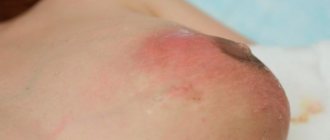Why does this habit occur?
Until recently, thumb sucking was definitely considered a bad habit. Therefore, both grandmothers and pediatricians clearly advised parents to wean their child from thumb sucking, using any available methods.
Today, doctors, including Evgeny Komarovsky, believe that it is absolutely useless to fight the instinctive desire to suck in an infant. But this does not mean that no measures need to be taken.
The main reason why a baby pulls a finger (and sometimes other objects, such as the edge of a blanket) into its mouth is an unsatisfied sucking instinct. Therefore, it is quite difficult to wean an infant from thumb sucking.
To get rid of this habit, you need to give the baby the opportunity to satisfy the sucking instinct. Those babies whose mother breastfeeds “on demand” suck their thumb much less often than those who receive food “on a schedule.” And the “champions” for sucking thumbs or other objects are children who are bottle-fed from birth.
So, what reasons make a child suck his thumb?
- Hunger. Many children begin to smack their fingers when they have a desire to eat.
- Emotional discomfort. Don't think that the baby doesn't understand anything. Even if the baby does not perceive words, he perfectly feels the emotional situation. Therefore, if a mother is tense and nervous, her baby will definitely feel it. And the only way for a baby to calm down is to satisfy the sucking instinct.
- Tactile hunger. Children, who are rarely picked up by their mother, show a special “passion” for sucking fists and fingers. A baby needs tactile contact. Massage, stroking, holding in arms is not a whim, but a necessity.
Parents' mistakes
Often parents behave incorrectly towards their child, not knowing how to wean their child from thumb sucking. What you should not do is:
- scold the baby and punish him;
- smear his fingers with mustard, because he can rub his eyes with them;
- pull fingers out of the baby’s mouth and hit his hands;
- forced to wear gloves.
These strict measures will only achieve serious cooling in the relationship with the baby and his isolation. He will still secretly try to pick up a speck from the floor and put it “for analysis” in his mouth. It’s better to calmly and smilingly invite him to compete to see who can throw out this “bulk” faster.
Acceptable measures
- You must not create reasons for fear. If a child is frightened by the dark, then the door to his room should always be left slightly open or a night light should be turned on. It is worth excluding watching scary cartoons and reading the same fairy tales.
- The adult traits that appear in the baby’s behavior should be encouraged in every possible way: teach him to swim, read, ride a bike, and don’t hesitate to praise him for his successes.
- Having noticed a finger in a child’s mouth, you should offer him to build a house out of Lego, lay out a mosaic, even sort out the cereal in the kitchen - any method will do to redirect his attention.
- When trying to wean a child from putting his hands in his mouth, you need to be consistent and prohibit him from doing this for each subsequent day. Moreover, the whole family should do this together - dad, older children, grandparents, and not just mom.
- It is advisable to always play with your child. Let him look for the small parts of the toy himself, and his mother will tell him what they are for. It is important to switch the child’s interest in the right direction: “this bead was in a hairpin, with it it’s so beautiful”, “the new toy has multi-colored cubes, that’s where this one should be”, “you can’t put the toy in your mouth, even if it’s beautiful, mom after all, he can always treat you to another tasty treat.”
- If a child tries to taste a slipper, a TV remote control, or a toothbrush, then you should not rudely snatch these items from the child’s hands, but take a similar item and tell him what it is for and show him how to use it. Let the child have a peeled onion in his hand - you should not take it away immediately, because this will make it even more valuable to him, like everything forbidden. If a mother patiently explains to even an eight-month-old baby why she should not put this or that object in her mouth, then she will help him find a common language with adults, and the child will reciprocate her feelings.
- If a small object is already in the mouth, then you should not panic and shout at the child; on the contrary, you need to gently ask him to show first his teeth, then his tongue, ensuring that the baby pushes out the foreign body himself.
- It is useful to teach a child to put everything into the hands of his parents and encourage him for this.
- If the baby tries to put something in his mouth again, then he needs to be distracted with some kind of game or book, and at this time, unnoticed by him, the “prey” must be removed from his eyes.
- If a child finds himself in an environment where there are a lot of new toys, then it is better to put a cracker in his hand to distract him from the desire to taste the toys.
Thumb sucking normally goes away by the age of 3-4 years, but if parents do not show enough attention and patience to the child, then this bad habit can turn into an obsessive desire to bite nails and bite fingers.
What is the danger of habit?
So, we figured out the reasons for habit formation. However, despite the fact that these reasons are quite natural, it is possible and necessary to fight the habit, since it certainly cannot be called useful.
- Hygiene. As long as the baby lies in his crib, there are no special problems. But as soon as he begins to “master” the surrounding space, a problem with hygiene arises. An active baby can pick his finger in his own pot, and then calmly put it in his mouth. It’s even more difficult for mothers on walks, because while it’s still possible to keep the apartment clean, it’s impossible outside.
- Damage to the skin on the “working” finger. If the finger is often in the mouth, the skin undergoes maceration (moistening), which greatly reduces local immunity. This can contribute to inflammation. In addition, intense sucking may cause a callus to form on the delicate skin.
- Dental problems. This question is relevant for those children who have already left infancy, but have not said goodbye to the habit of putting their finger in their mouth. For a child 4 years of age and older, such a habit can result in the formation of a malocclusion or crooked teeth.
- Speech therapy problems. Children who cannot give up the habit of thumb sucking for a long time may experience difficulty pronouncing certain sounds.
- Psychological difficulties. For a 5-year-old child, such a habit can result in problems that arise in the children's group. Children of this age may tease and ridicule a peer who constantly sucks his thumb.
LiveInternetLiveInternet
Sunday, March 04, 2012 21:19 + in quote book How to wean your baby from thumb sucking?
A CHILD IS THUMB SUCKING – HOW TO INCREASE IT? https://mamarada.su/?p=770 To solve any problem, you need to understand the cause of its occurrence. The reason for a baby's thumb sucking has its origins in infancy, and is called the unsatisfied sucking instinct. And, if you notice this problem before the baby is one year old, it is easier to solve it at this stage than at a later period. During this period, it is necessary to offer the baby the breast more often, or accustom him to a pacifier (pacifier). If you are an opponent of the pacifier, believe me, in the future it will be much easier to wean your baby off it than from thumb sucking, and also the dental bite will not deteriorate as much as from thumb sucking. If the baby is bottle-fed, then you just need to increase the feeding time, that is, take a nipple with a thinner hole diameter so that the mixture flows more slowly. Most likely, using these methods, you will not completely eliminate the habit, but you will be able to reduce the frequency and duration of thumb sucking. When a child starts teething, he may instinctively bite his fists and fingers - this is not thumb sucking. Usually the need for sucking begins to decrease after 4-7 months, sometimes after a year, and if up to this point you were able to control the baby and protect him from thumb sucking, this is great, most likely, this problem will not bother you anymore. But only 5% of parents who are faced with such a situation are able to do this, I repeat once again, the rest can only reduce the amount and time of thumb sucking. Difficulties begin when the baby continues to suck his thumb after a year. This is an already acquired reflex; the child involuntarily uses this remedy to calm himself. The baby will suck his thumb when he is upset, worried, wants to sleep, when he lacks attention, when he cannot achieve what he wants, or when he is simply bored. Now the most important thing: do not scold the baby for thumb sucking, do not make comments to him, and under no circumstances force the finger out of the child’s mouth. There are still people who call thumb sucking “bad manners”, “bad upbringing”, you may encounter the fact that your acquaintances and friends will point out to you “how ugly” your child behaves, they will say that it is unhygienic and unpleasant to look at or people will demand to change the situation. Be patient, these people have never encountered this kind of problem themselves, or they are people of the “old school”, and in their times the problem of thumb sucking in babies was not considered a neurological problem. Be prepared for the fact that thumb sucking very rarely goes away by the age of 3; more often, this “habit” disappears between 3 and 6 years (sometimes it can remain at a later date, in this case a consultation with a neurologist or psychologist is advisable). We cannot eliminate this “habit” completely, but we can minimize it. Observe the child during what periods he sucks his finger, which precedes the baby putting his finger in his mouth. If you find a pattern, try to avoid such situations. If your baby sucks his thumb only before bed or before eating, just don’t focus his attention on it; it will go away over time. If he sucks his thumb during the day, distract the baby and redirect his attention. Painting with paints or doing modeling is very soothing (preferably from modeling mass, not plasticine, as it is softer and more pliable, the child will calm down during the process, you can use salt dough). Invite your child to get creative or sort grains. If thumb sucking occurs during whims, use “forced hugs” and take the baby in your arms more often. I do not recommend using various bitter ointments and remedies; most often they only last as long as you use them. Upon completion, the whole situation returns to normal, and the baby can begin to suck his finger with greater zeal than it was before the start of using bitter remedies. While using ointments, he will be very worried and nervous, not being able to calm himself down in the usual way, thereby you can only aggravate the situation. So how to wean it? I will disappoint you, no way. Don’t rush to correct the situation, you won’t fix it, but you can help your baby feel more comfortable, give him the opportunity to quickly forget that he has a need and necessity for thumb sucking. HOW TO WEAN YOUR BABY'S THUMB SUCKING? https://detky.in.ua/malysh/razvitie-i-vospitanie/65...hit-malysha-sosat-palchik.html Usually, most babies do not need to suck a pacifier or finger by the age of two. This habit, which persists after 5 years, should alert parents. This not only harms the growth of permanent teeth, but may also indicate increased anxiety and low self-esteem in the baby. The baby begins to suck his finger while still in his mother’s tummy, so it is not surprising that after birth he continues to return to his favorite finger. Sucking is considered one of the main reflexes in infancy; it ensures satisfaction of the need for food and is a way of self-soothing and self-regulation. Taking into account the importance of sucking for the development of a child in the first years of life, one should not fight it, but look for ways to replace this habit. If the baby is bottle-fed or is breastfed strictly on time, his need for sucking may not be fully satisfied. The solution may be more frequent and prolonged breastfeeding or reducing the single portion of food while increasing the frequency of feeding. Using a pacifier can also help. It is much more difficult for a baby to get rid of the habit of thumb sucking than of sucking a pacifier. If the baby is not yet a year old, it is advisable to switch him to sucking a pacifier. To do this, you need to offer the child different types of nipples; sometimes the baby chooses fairly cheap nipples from a certain brand. To help your child get rid of this habit, you first need to understand the reasons for such actions. After all, if they are not eliminated, the baby, having gotten rid of thumb sucking, will find a replacement for his habit. There may be several reasons: • Unsatisfied instinct due to difficulty breastfeeding; • Abrupt and early weaning; • Sudden separation from mother; • Conflicts and quarrels in the family; • Too strict upbringing; • A change of scenery; • Emotional discomfort; • Severe fear; • Insufficient amount of affection, attention and communication; • Starting to attend a nursery or kindergarten. The basis of any habit is the memorization of certain movements in response to tension, stress, and experience. These movements calm and reduce tension, distract from fears and worries. In the case of sucking, the baby also experiences a feeling of pleasure from the process itself. The baby does not yet know any other ways to calm himself down and cope with emerging difficulties. Therefore, after the causes have been identified, you need something to replace the soothing effect of the finger. During the weaning process, care should be taken to timely calm the baby, relieve anxiety and restlessness. In order not to provoke the desire to return to the saving finger, there is no need to limit the baby’s actions too much; it is better to strengthen a trusting relationship. It is imperative to praise any independent action, thereby strengthening the child’s self-esteem and self-confidence. After the introduction of complementary foods and a gradual transfer to the common table, the baby gradually develops the skills of independent feeding. In this case, the need for sucking is reduced to a minimum over time. Instead of a finger, you can offer your baby something tasty and edible, such as a piece of banana or cucumber. You can use a favorite toy or just a household item (for example, a pillow) as comfort or reassurance. Mom's kisses and hugs are a great distraction from sucking. Often a baby sucks his thumb out of boredom or fatigue, so you need to create conditions for the child to receive a wide variety of impressions. You should offer different games and activities, both calm and active, especially those in which the child’s hands will be busy. The simplest games of ball and hide-and-seek are suitable, as well as nursery rhyme games, the famous “ladushki” or “thief magpie”, you can tear up old newspapers, sprinkle cereals and stones, and play with water. You definitely need to draw and sculpt; for sculpting you can use plasticine, clay or salt dough. The main thing is to provide different tactile impressions for the baby. It is very important to have calm communication with your baby before bedtime; this will help the baby calm down and make him less excitable and more balanced. It’s good if this becomes a daily ritual; in addition to communication, you can tell a bedtime story, stroke the baby, even rock him a little, maintaining a certain rhythm, as when sucking. Rituals help maintain a sense of security and stability. A daily “mom massage” will also help relieve emotional stress: gentle stroking not only of the tummy and back, but also of the arms and legs, especially the palms and feet. It is strictly forbidden to demand to immediately remove the finger and shame the baby, forbid, punish or smear the finger with some nasty thing - all these actions can aggravate the situation. Fear of punishment and feelings of guilt can lead to neurosis, and then instead of one bad habit, the baby will get more serious problems. Attempts to convince a child to give up a bad habit, citing the child’s adulthood, usually do not bring results. It will be more useful to reduce the need for sucking to develop independence and curiosity, and the ability to keep oneself busy. There is no need to set a time frame for yourself; it usually takes a lot of time to get rid of a habit. To achieve the desired result you will need patience, attention, calmness and, of course, love! HOW TO TRAIN YOUR BABY FROM TAKING A FINGER IN THE MOUTH? https://medivin.ru/default_8720.html Thumb sucking is a harmful and ugly habit, and you need to rid your child of it. First, let's figure out why this happens. If your one-year-old baby sucks his thumb, then this most likely means that he was fed from a nipple with a wide hole, and therefore he drank the mixture “in one gulp” in a few minutes, satisfying only the feeling of hunger, but not the need for sucking, a very important , for early development. After all, to extract the same amount of milk from the mother’s breast, the baby would need at least a quarter of an hour. If your baby has acquired a taste for thumb sucking after 1.5-2 years, and before that did not show interest in it, there are three possible reasons. 1. The child is scared of something. He may be afraid of the neighbor's huge dog, Baba Yaga, or simply afraid to sleep in the dark, but thumb sucking calms him down. 2. You are too strict and demanding of your child. 3. You sent your child to kindergarten when he was not ready for it, and for a while you discouraged him from growing up, sowing the seeds of immaturity. As a result, the child partially returned to infancy. It is interesting that in preschool age, boys are less independent, more dependent and vulnerable than girls, so the habit of thumb sucking “clings” 5-6 times more often than with their peers. How to eliminate this nasty habit? Let's listen to the advice of leading experts in the field of pediatrics, child psychology and psychiatry. WHAT NOT TO DO - scold and punish a child; - smear the baby’s fingers with mustard; - force the baby to wear gloves; - slap hands and pull the finger out of the baby’s mouth. With such drastic measures you will achieve nothing except that you will seriously and permanently ruin your relationship with your own child. What you can do - Try not to create the ground for fear. If your baby is afraid of the dark, always leave the door to your baby's room ajar so that he can see a strip of light, or turn on a night light in the nursery. And also introduce a ban on scary fairy tales or cartoons. - Don’t forget to encourage “adult” aspects in your child’s behavior in every possible way: teach him to read, swim, ride a bike... And praise him for his successes more often. - Finger in mouth again? Invite your child to put together a mosaic pattern, build a house out of Lego, sort through beans or cereal in the kitchen - in a word, come up with any way to redirect the child’s attention! Typically, thumb sucking goes away without a trace by the age of 3-4 years, but if parents are not patient and attentive enough to their child, the bad habit can develop into an irresistible urge to bite fingers, gnaw, and sometimes even eat nails.
RAISING CHILDREN Message Series:
Raising Children
Part 1 - How to raise a child free and happy Part 2 - Card index of games for working with aggressive children ... Part 25 - “LET WERE GOING TO PLAY, WE PLAYED - ALL THE TOYS WERE SCARED” Part 26 - Ignoring tantrums: good or bad? Part 27 - How to stop your baby from sucking his thumb? Part 28 - Mom’s plot for happiness (Dr. Drapkin’s method) Part 29 - The little son came to his father... Part 38 - N.S. Ruslanova Didactic material on the lexical topic “Vegetables. Fruits. Berries" For children 5-7 years old Part 39 - DIDACTIC GAME COLOR AND SHAPE Part 40 - ALBUM ON SPEECH DEVELOPMENT 1-3 YEARS OLD. FOR THE SMALLEST.
Series of messages “TO PREGNANT MOMMS AND MOMS OF BABIES”:
To pregnant women and mothers of babies
Part 1 - Massage for a baby Part 2 - a seat-cover on a chair for a child... Part 24 - Black and white drawings - stimulation of vision for newborns Part 25 - Certificate of family composition (Ukraine) Part 26 - How to wean a baby from thumb sucking?
Part 27 - Mom's plot for happiness (Dr. Drapkin's method) Part 28 - Lullabies ... Part 32 - TOTSIT - TRAVEL CHAIR FOR FEEDING AND CHILD SAFETY.MK. Part 33 - We sew bibs for babies... Part 34 - ALBUM ON SPEECH DEVELOPMENT 1-3 YEARS OLD. FOR THE SMALLEST. Cited 4 times Liked by: 1 user
Like share
0
Like
- 1
I liked the post - Quoted
- 0
Saved
- Add to quote book
- 0
Save to links
Liked1
0
Advice from psychologists
1. Don't actively insist that your child remove his finger from his mouth. Not everyone will be helped by frightening stories about worms, etc., and may even worsen the situation.
2. If you are bottle-feeding for a short time, choose a nipple with a smaller hole and extend the time to 20 minutes. It is important for the child to satisfy the sucking reflex.
3. If you are breastfeeding, increase the frequency of putting your baby to the breast, feeding time to 35-40 minutes.
4. Make sure that the child does not get tired, does not get overexcited, and watch how he sleeps. It may be worth protecting your child from unnecessary stress and playing less active games before bedtime. If he is already talking, then talk to him about what is bothering him.
5. Without drawing attention to the child’s habit, distract him with something else (a game, a fairy tale, a cartoon, etc.) and calmly remove the finger from the child’s mouth with your hand.
6. Communicate more with your child, play with him.
If you have tried everything, and the child puts his finger in his mouth no less often, contact a child psychologist. It is important to find the habit of this obsessive state of the child. Otherwise, simply unlearning this habit without solving the problem can turn into stuttering, tics, or hair pulling as compensation.











